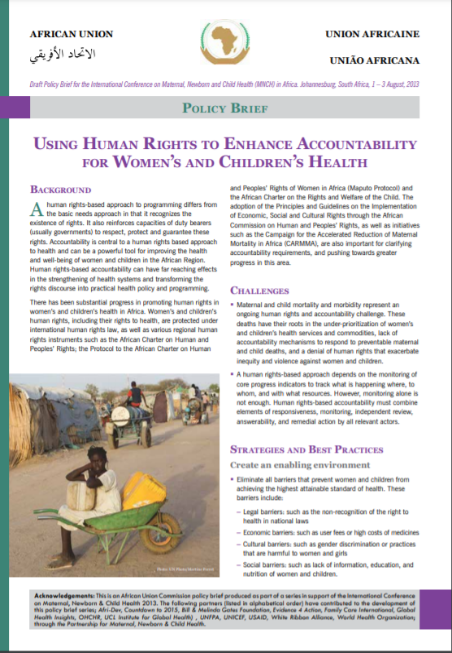Using Human Rights to Enhance Accountability for Women’s and Children’s Health 2013
1 August 2013
| Meeting report

Overview
Ahuman rights-based approach to programming differs from the basic needs approach in that it recognizes the existence of rights. It also reinforces capacities of duty bearers (usually governments) to respect, protect and guarantee these rights. Accountability is central to a human rights based approach to health and can be a powerful tool for improving the health and well-being of women and children in the African Region. Human rights-based accountability can have far reaching effects in the strengthening of health systems and transforming the rights discourse into practical health policy and programming.There has been substantial progress in promoting human rights in women’s and children’s health in Africa. Women’s and children’s human rights, including their rights to health, are protected under international human rights law, as well as various regional human rights instruments such as the African Charter on Human and Peoples’ Rights; the Protocol to the African Charter on Human and Peoples’ Rights of Women in Africa (Maputo Protocol) and the African Charter on the Rights and Welfare of the Child. The adoption of the Principles and Guidelines on the Implementation of Economic, Social and Cultural Rights through the African Commission on Human and Peoples’ Rights, as well as initiatives such as the Campaign for the Accelerated Reduction of Maternal Mortality in Africa (CARMMA), are also important for clarifying accountability requirements, and pushing towards greater progress in this area.
Number of pages
2

.png?sfvrsn=6d0e27cd_1)



